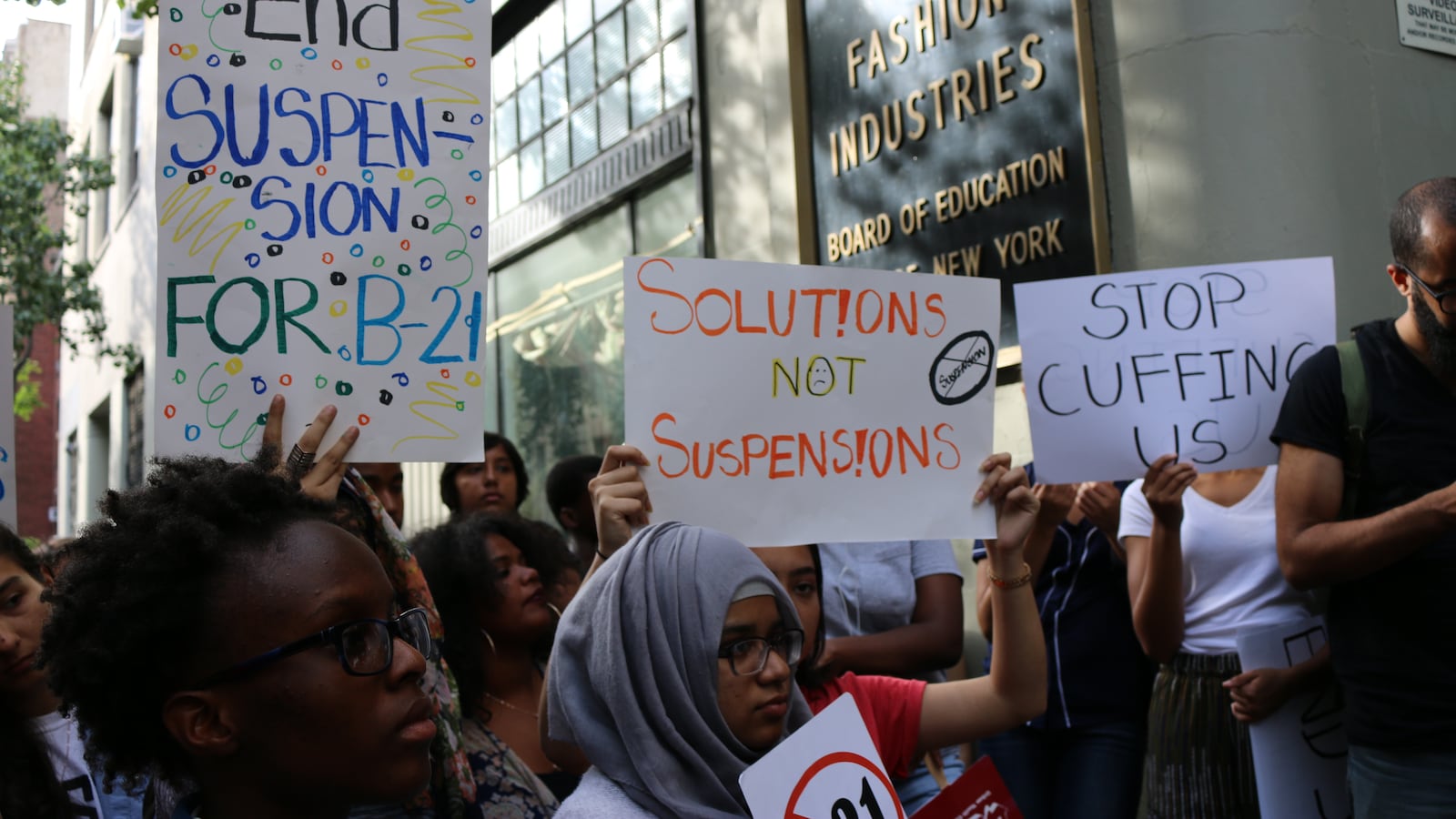Reams of research show that students who are suspended are also more likely to drop out, get sucked into the juvenile justice system, and face a slew of other academic challenges.
But a crucial question has largely gone unanswered: Do suspensions themselves cause those negative outcomes, or are the factors that led to the suspension in the first place the real culprit — or some combination of both?
New research focusing on New York City offers fresh evidence to help answer that question. The paper, published in the peer-reviewed American Journal of Education, suggests that suspensions really do contribute to students passing fewer classes, increasing their risk of dropping out, and lowering the odds of graduating.
The findings add new evidence to a heated debate playing out in New York and across the country about how suspensions affect students, and whether dramatically reducing them could boost outcomes for students of color and those with disabilities, groups that are disproportionately suspended.
Using data from roughly 70,000 New York City high school students collected between 2005 and 2011, Columbia University researchers Liz Chu and Doug Ready attempted to isolate the effects of suspensions by comparing students’ academic records during a semester in which they were suspended with a different semester in which the same students were not suspended.
By comparing students with themselves across different semesters — the difference being whether they were suspended — the paper tries to zero in on the suspension’s effect, minimizing factors like a student’s home life that can be difficult to measure and complicate comparisons between different students.
In the short term, suspensions seemed to have modest, but notable, consequences. They contributed to a 3 percentage point reduction in passing math classes and 4 percent for English classes. A suspension was also linked to a 2 percentage point increase in the likelihood of dropping out the following semester, and an additional absence from school.
Those results were consistent for more serious types of suspensions, with the exception that students tended to be absent for even more days (despite being removed from their classrooms, students facing serious “superintendent” suspensions are still typically expected to show up for classes in an alternative setting).
The authors acknowledge their findings don’t prove that suspensions are the root cause of negative consequences such as declines in academic performance. The methodology can’t definitively rule out that outside factors — such as a death in the family — caused a student to perform worse academically and also triggered behavior problems that led to the suspension.
“These methods are eliminating a lot of that bias, but they’re still not likely eliminating all of it,” said Kaitlin Anderson a researcher at Michigan State University who has studied school discipline and reviewed the paper at Chalkbeat’s request. “I think it’s definitely a more novel approach than most of [the research] out there.”
Anderson’s own research focusing on students in Arkansas found suspensions did not seem to have a negative effect on test scores in the year following a suspension.
In New York City, the authors saw more dramatic long-term effects, noting that students were significantly less likely to pass Regents exams required for graduation, and were less likely to graduate on time. However, those findings are based on a different statistical method that is less able to tease out cause and effect, and which compares students with other peers at the same high school.
The paper could bolster the arguments of those who favor reforming school districts’ discipline codes to reduce suspensions. But because the findings are based on data that was collected years before New York City changed its school discipline policies to reduce suspensions, the paper doesn’t offer any direct evidence about how those efforts are playing out. Critics argue that the new discipline policies have led to less orderly classrooms, something the study doesn’t examine.
Still, Chu, one of the paper’s authors, argues that the new research offers some evidence that alternatives to suspensions are worth pursuing.
“If you take this along the other rich detail that exists about the harmful effects of suspension,” she said, “it makes it even more difficult for a critic who thinks suspensions aren’t that bad for students to stand in that position.”

